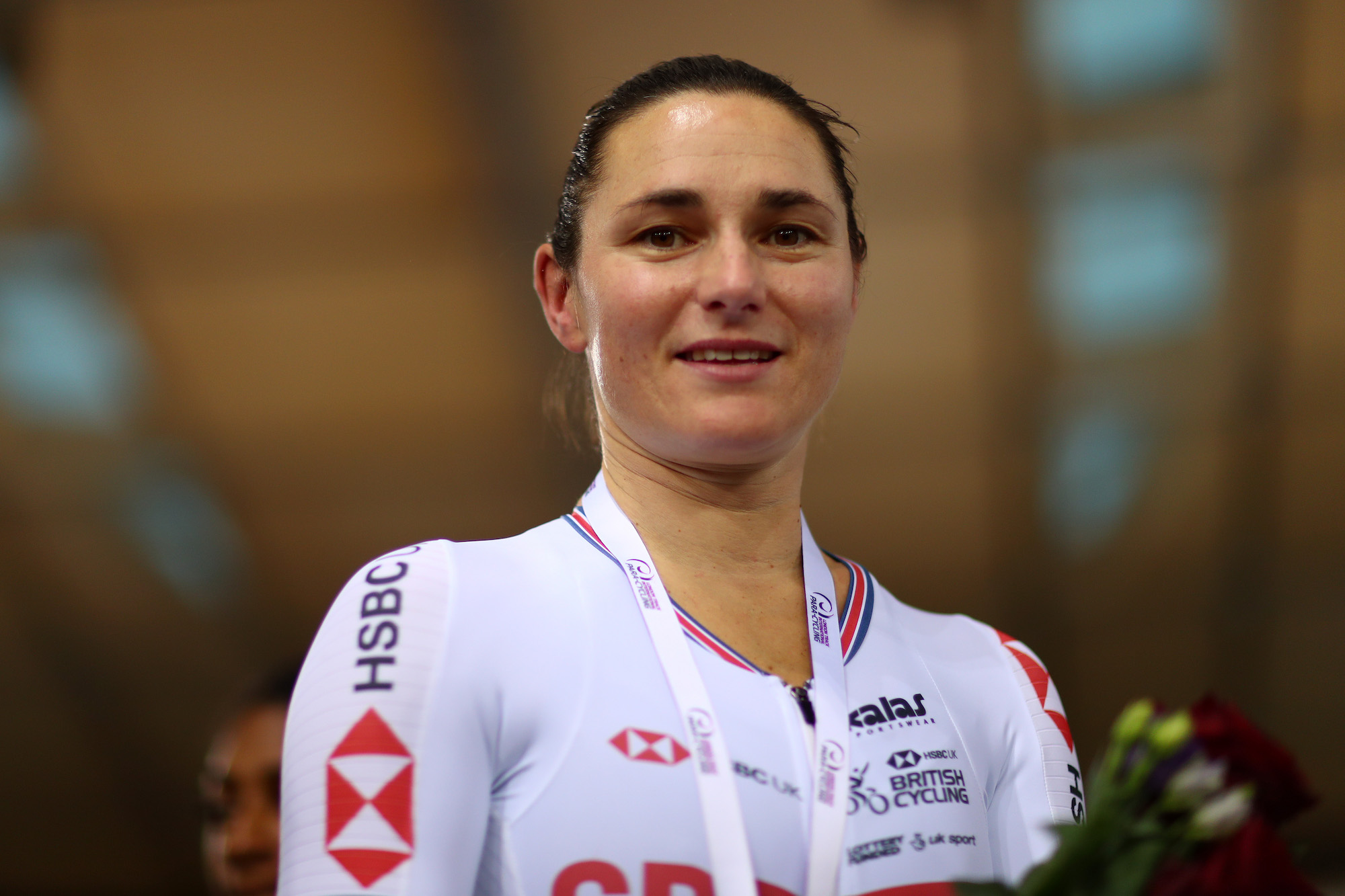Sarah Storey received retroactive TUE for asthma inhaler at London 2012 Paralympics
Storey returned an adverse finding after her first gold at the Games, but wasn't told about it until after she'd won her fourth medal a week later

Paralympic cyclist Sarah Storey was issued with a therapeutic use exemption (TUE) after a urine sample at the London 2012 Paralympics was found to have a level of salbutamol over the permitted limit, the Times has revealed.
Salbutamol is a drug used to treat asthma, and athletes are allowed to use it in specified quantities, but it's also considered to be performance-enhancing in high doses so an acceptable limit is set by the World Anti-Doping Agency. Salbutamol was the drug at the centre of Chris Froome’s anti-doping investigation in 2017, of which he was cleared.
Storey’s case came after she was tested regularly following her first gold medal at the London Paralympics in late August 2012, returning an adverse analytical finding soon after and subesequently being issued a TUE permitting the use of the substance. Usually, TUEs are obtained in advance.
That first gold medal was the individual pursuit in her disability category, Britain’s first gold at the Paralympic Games, before going on to win three more in the road race, time trial and 500m time trial. Television footage shows Storey using her inhaler a few minutes after winning the individual pursuit.
>>> Biggest watt saving for your investment? 'Buy a mirror,' says Dan Bigham
Storey told the Times, through her lawyer, that she experienced “breathing difficulties” after the race and used her reliever inhaler as she was about to speak to journalists. She does not deny that she returned an adverse analytical finding.
The now-43-year-old also said that having been diagnosed with asthma as a child she has since become “less inclined” to use her inhaler after races “given the way retroactive TUEs have been portrayed by the press”.
Get The Leadout Newsletter
The latest race content, interviews, features, reviews and expert buying guides, direct to your inbox!
The British Paralympic Association (BPA) has told the Telegraph it’s confident everything was done by the book, with the International Paralympic Committee IPC), WADA and the UCI all aware of the situation.
The IPC said it took a week for the BPA to be notified of the adverse finding, and that Storey was not told until after she had won the three other gold medals at the Games. It was after the final medal that the BPA then applied for a retroactive TUE on behalf of Storey.
This meant that the adverse finding was not recorded as a positive drugs test. After 2012 the rules on TUEs have changed, and WADA are now the only organisation permitted to grant retroactive TUEs.
In response, a British Cycling spokesman said:
“Our understanding is that both the British Paralympic Association and the rider followed the appropriate processes, and that the International Paralympic Committee, UK Anti-Doping and the World Anti-Doping Agency have raised no concerns either at the time or since.
“As one of our responsibilities as a governing body is to give a voice to athletes in our sport, we must raise concerns at what would appear to be a substantial breach of privacy without a substantial demonstration that this was in the public interest.
“One of the reasons why WADA’s processes are confidential is to protect athlete well-being so we are particularly concerned by the impact stories like this could have on athletes who may under-use their medicine, and harm their health, rather than risk their private medical records becoming public in the future.”

Thank you for reading 20 articles this month* Join now for unlimited access
Enjoy your first month for just £1 / $1 / €1
*Read 5 free articles per month without a subscription

Join now for unlimited access
Try first month for just £1 / $1 / €1
Jonny was Cycling Weekly's Weekend Editor until 2022.
I like writing offbeat features and eating too much bread when working out on the road at bike races.
Before joining Cycling Weekly I worked at The Tab and I've also written for Vice, Time Out, and worked freelance for The Telegraph (I know, but I needed the money at the time so let me live).
I also worked for ITV Cycling between 2011-2018 on their Tour de France and Vuelta a España coverage. Sometimes I'd be helping the producers make the programme and other times I'd be getting the lunches. Just in case you were wondering - Phil Liggett and Paul Sherwen had the same ham sandwich every day, it was great.
-
 FDJ-Suez, SD Worx-Protime, Lidl-Trek confirmed for Tour of Britain Women as strong list of teams announced
FDJ-Suez, SD Worx-Protime, Lidl-Trek confirmed for Tour of Britain Women as strong list of teams announced18 teams set to take part in four-day WorldTour stage race
By Tom Thewlis
-
 Cyclists could face life sentences for killing pedestrians if new law passed in England and Wales
Cyclists could face life sentences for killing pedestrians if new law passed in England and WalesReckless cycling currently carries a maximum two-year jail term
By Tom Thewlis